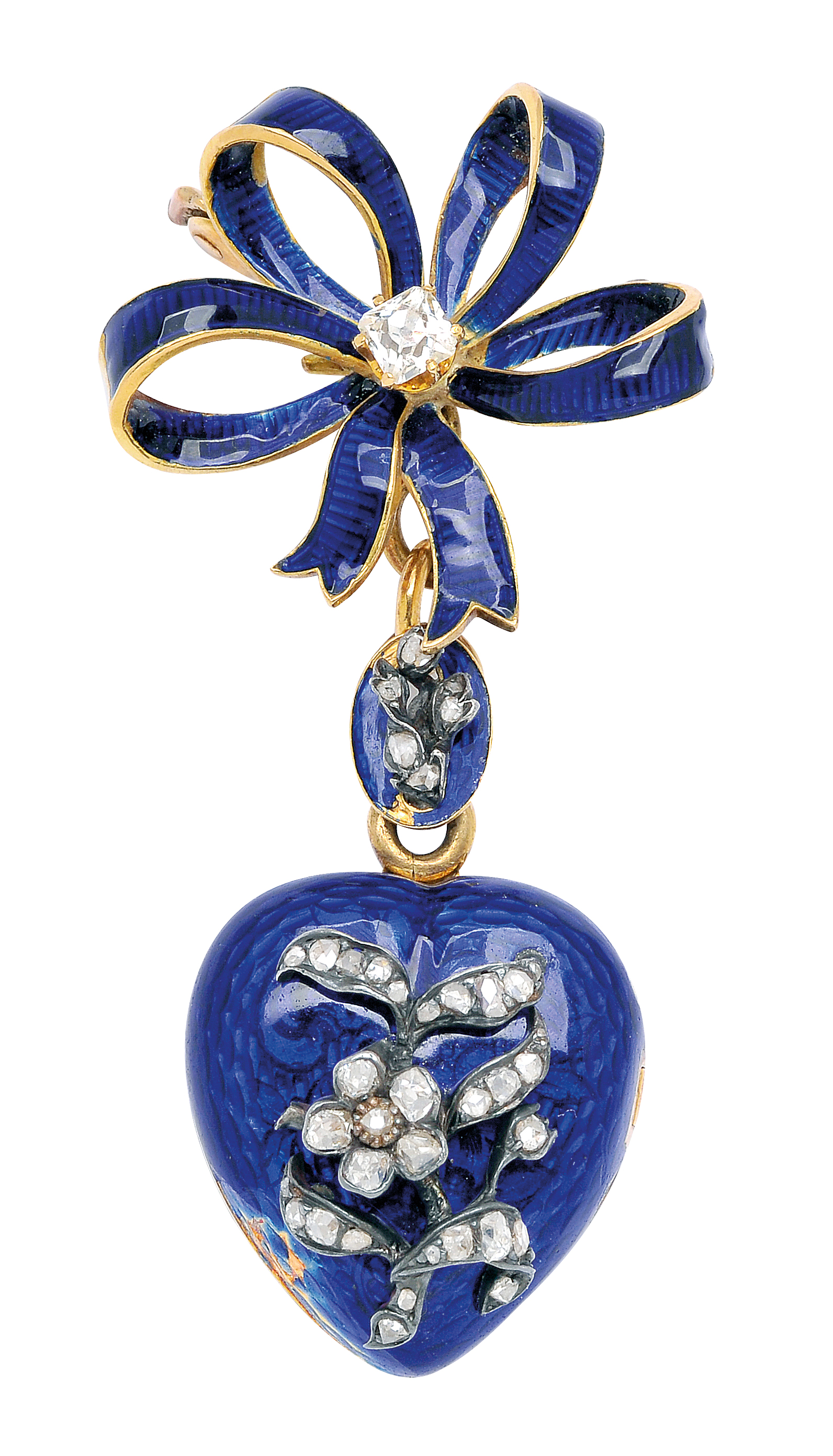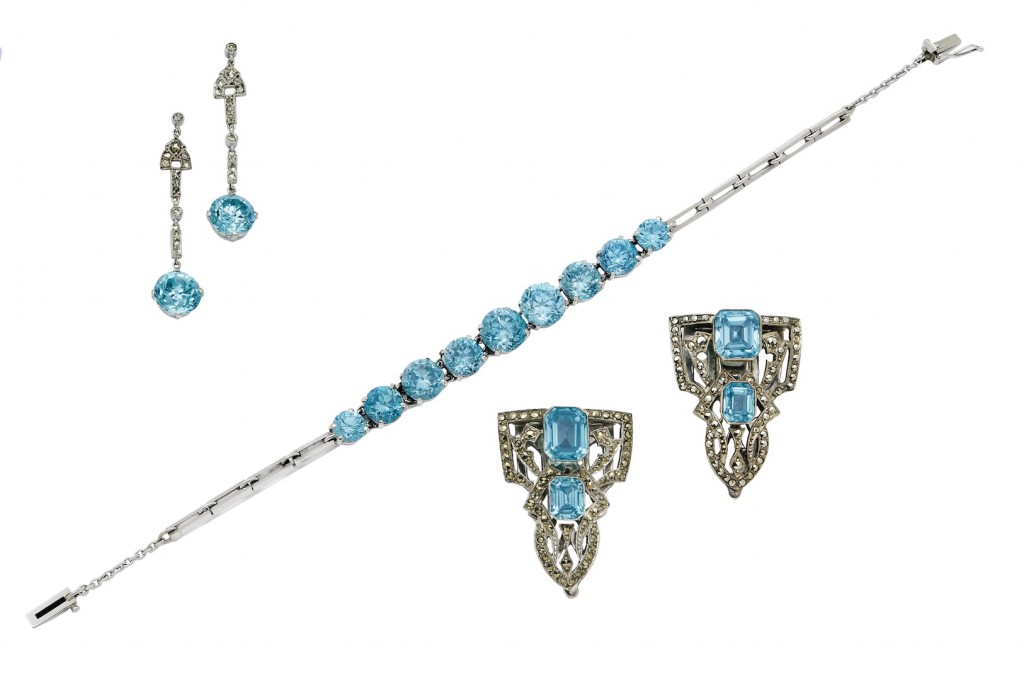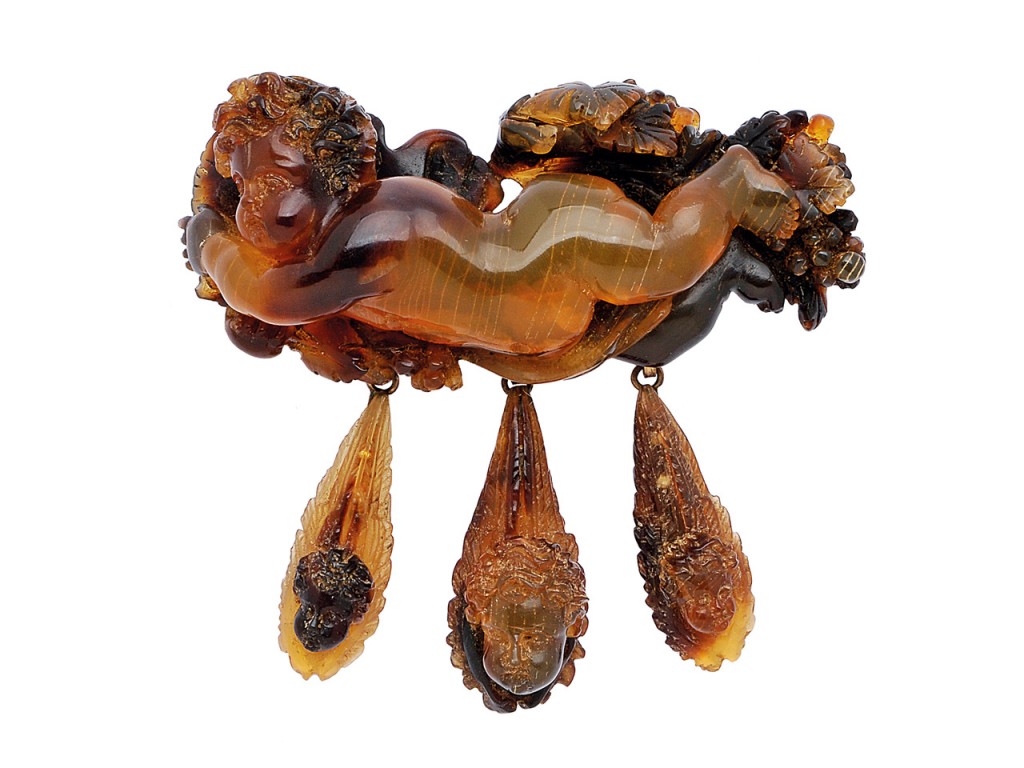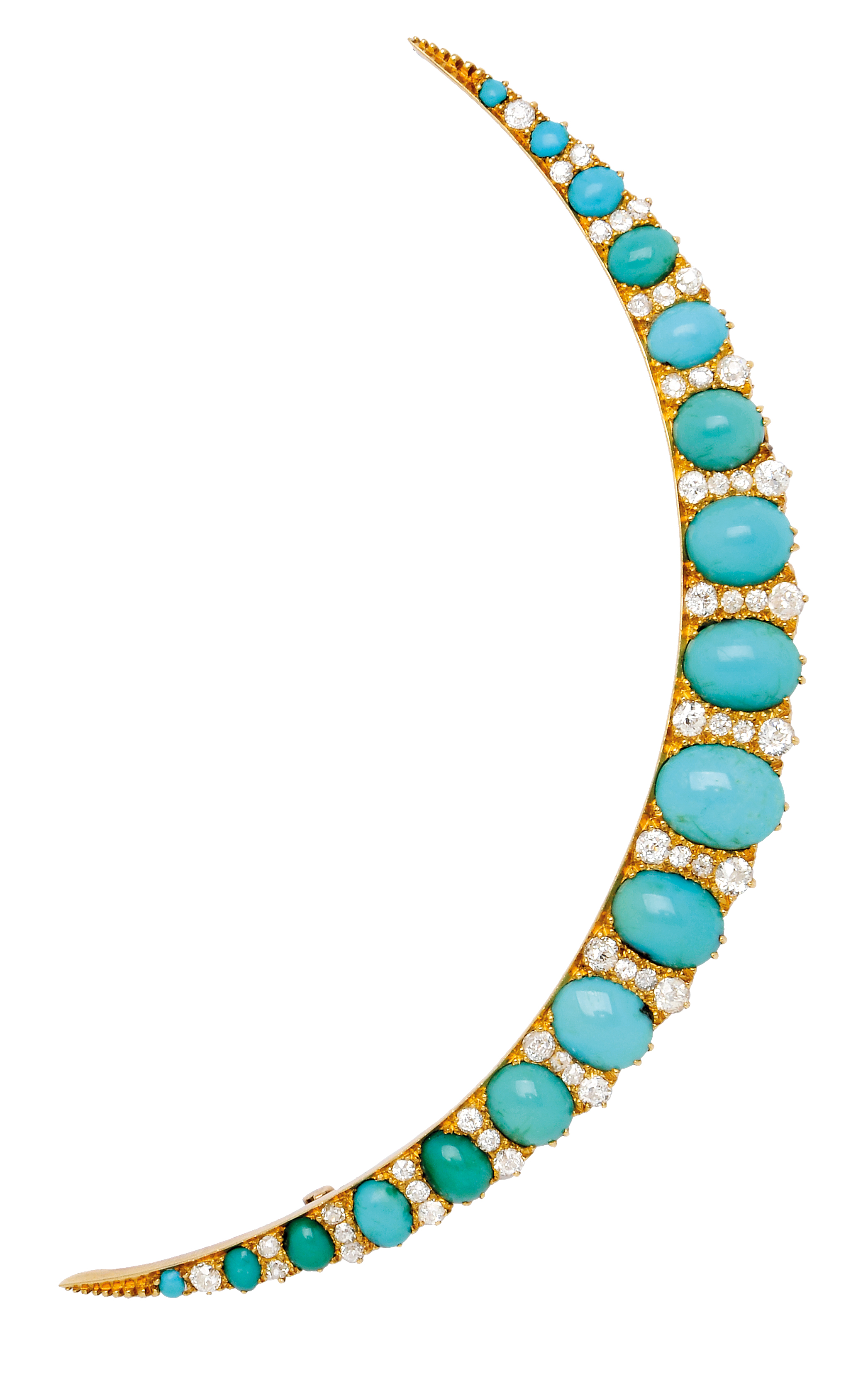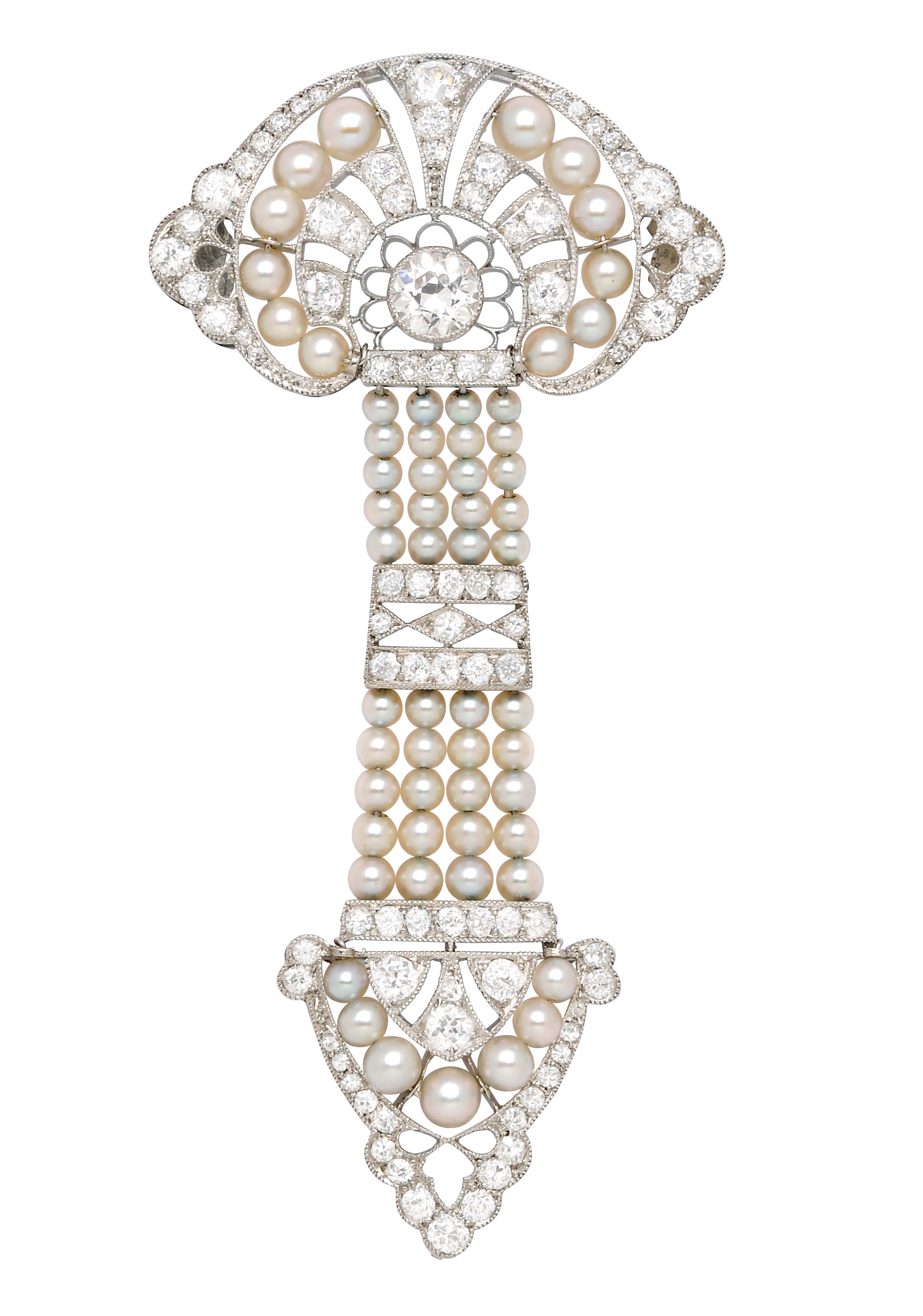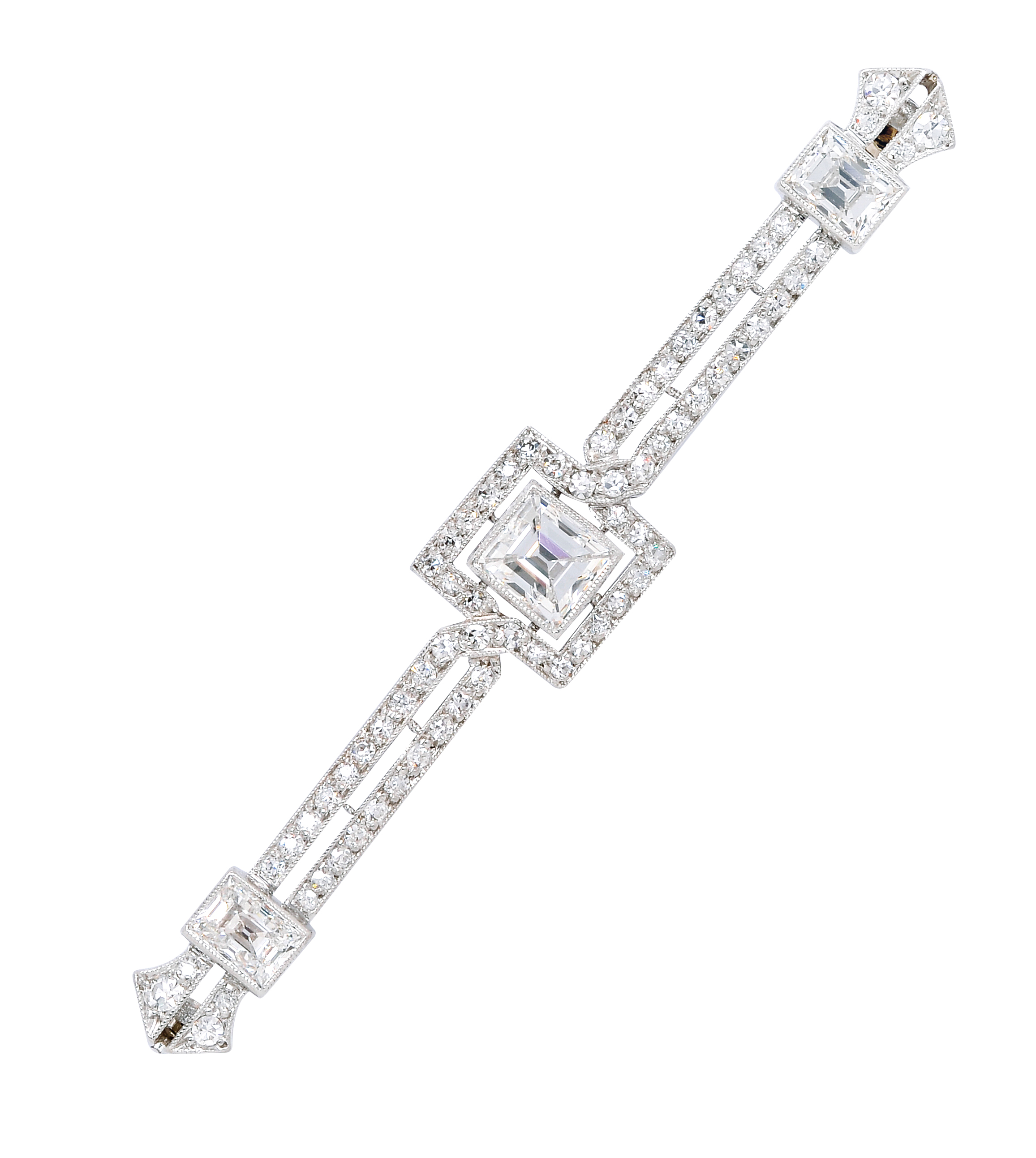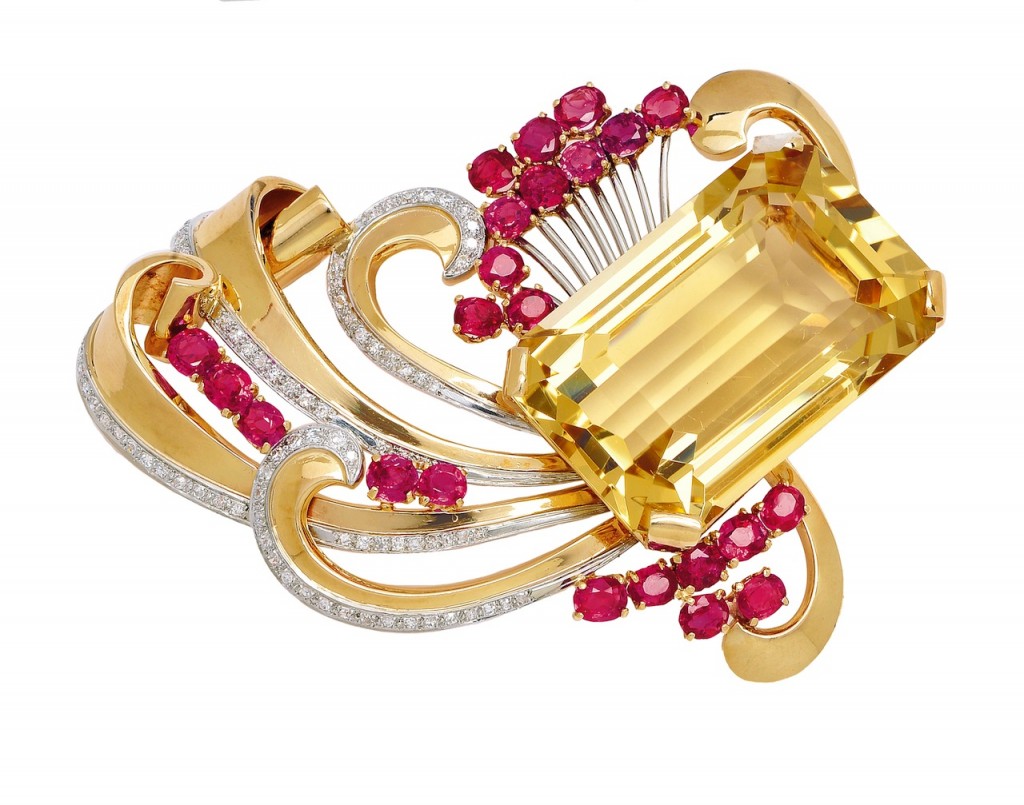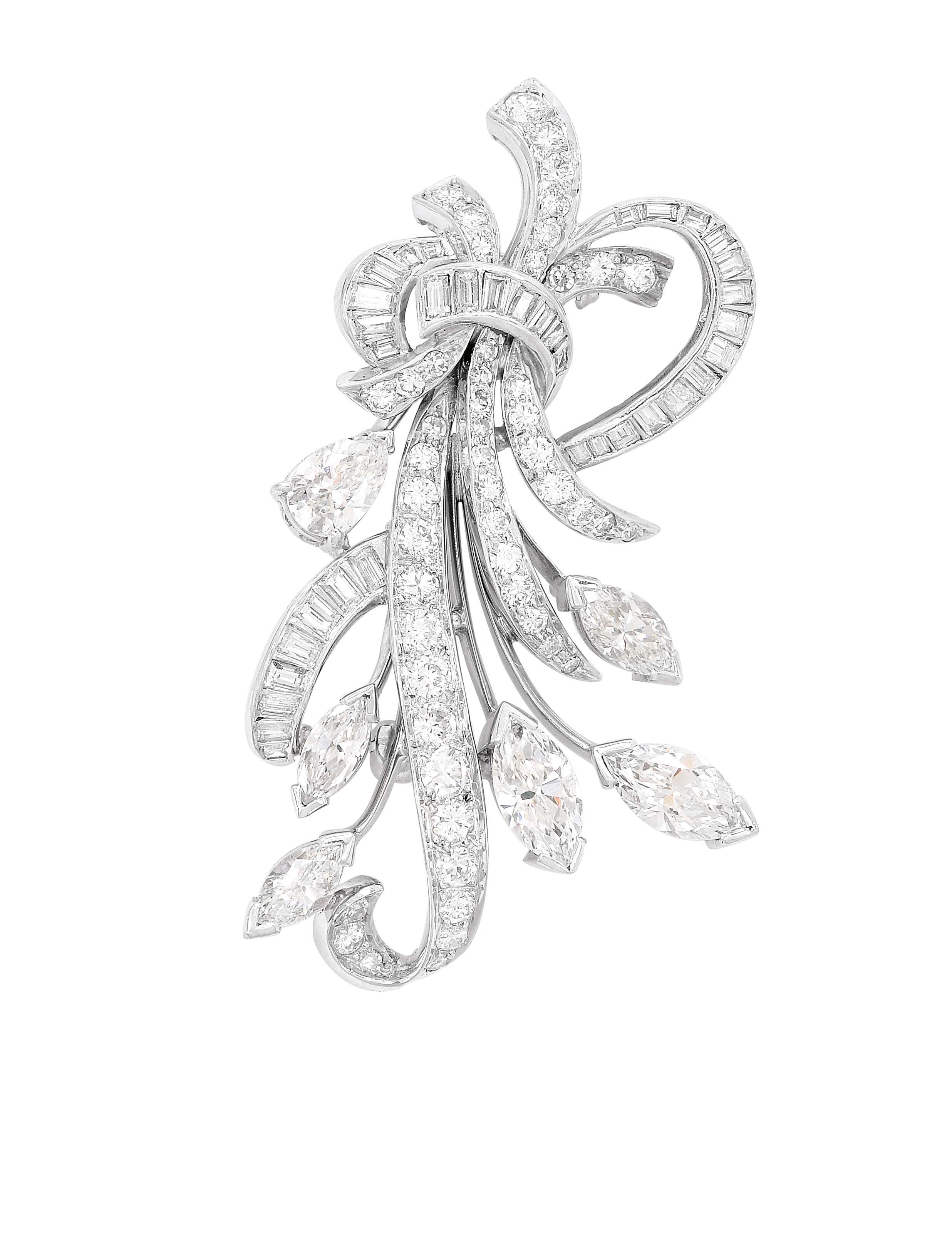A brooch is something that makes a statement to the world. It’s often worn on a coat, blazer or jacket, it isn’t limited to a time of day or a type of clothing. Women and men wear brooches equally.
The brooch has undergone many changes and variations, from a clip to secure clothes, to a badge of rank for soldiers, and it still serves those purposes, even if only symbolically.
We wear brooches, but only to to symbolically secure our clothes. The drapery of the ancient world may have been secured with a pin or brooch, while the traditional dress clips of the 1930’s and 1940’s were worn symbolically representing such things, but were purely decorative. These days dress clips, which generally come in pairs, are worn with a special fitting that allows them to be joined to form a larger single brooch.
Historically, when brooches weren’t used to secure clothing, they were used to represent a rank in society or membership in an organization. In modern jewellery, a brooch may be work to represent membership in a service club, or years of dedication, perhaps to a job or a relationship. More often than not, however, these days, a brooch is a personal reward, purchased for one’s own enjoyment “because I’ve earned it”.
Madeleine Albright, former secretary of State of the United States, is a famous brooch collector and wearer. Her collection of brooches is extensive, and she is rarely seen without a brooch. Albright has written a book Read My Pins, about her collection of brooches.
Brooches can address many moods, and state many things about the wearer. In a recent auction we featured a beautifully carved tortoiseshell brooch that was purely fun, and a joy to wear.
Often a brooch may feature a collection of gems, and is perfect as a spring flower garland.
A crescent is a classic shape of brooch, widely used in the 19th Century, it harkens to the “mysterious” East, at a time when the world was getting a little smaller. Europeans were fascinated with the world of Turkey, Persia (now Iran, the world’s most famous source of turquoise), and further afield.
The diamond brooch can work well in any situation. Diamonds will complement any outfit and any colour. The Spring auction features an impressive collection of diamond brooches, from antiques, through floral sprays, to very modern statement pieces.
The beginning of the Twentieth Century, and the end of the Victorian era saw the lightening of jewellery forms. The jewels of the Belle Epoque were light, lacy, and had an inspiration from the forms of nature. Brooches were very popular at the time, and these styles carry an enduring beauty.
Art Deco (around 1925-1930) remains a favourite among jewellery collectors and wearers. The style, originated nearly a century ago, remains fresh and stylish today. The geometric forms work well with so much fashion worn today. Men often wear Art deco brooches on their lapels.
The 1940’s, in the period after the war, there was a desire to wear big jewels, especially after the restraint and restrictions of the previous five years. Retro is the name of the style from this period. Retro Jewels often feature large curves in highly polished gold and rubies (frequently laboratory grown rubies) and diamonds.
The 1950’s and 1960’s saw a real interest in the brooch. Going out without being appropriately accessorized with a brooch was like going out without shoes. The well dressed woman had a brooch for every occasion. The classic was a diamond brooch, often in a stylized flower form or a floral spray. With the styles of the 1960’s coming so much into vogue, there is a real interest in the appropriate accompanying accessories. In jewellery, there’s no need to settle for reproductions, it’s possible to purchase originals at auction.
Brooches are ready to wear, never needs to be sized, and being worn affixed to clothes, brooches are usually in very good condition. Brooches are classic jewels and perfect statements of personal style.

